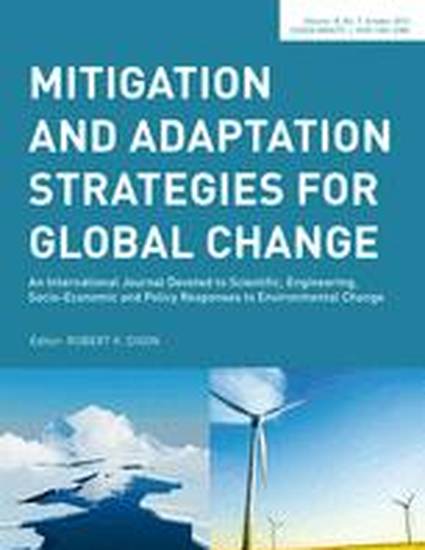
Article
Regulatory and Mixed Policy Options for Reducing Energy Use and Carbon Emissions
Mitigation and Adaptation Strategies for Global Change
(1996)
Abstract
This article discusses non-fiscal policy options to reduce energy demand and the resulting environmental impacts, and it reviews experiences with these options to date. Such policies include accelerating technology development and demonstration, stimulating product demand via procurement policies, applying efficiency standards to information-poor end-use sectors, and encouraging utility energy-efficiency programs. Efforts to implement such measures are underway in several industrialised countries and have begun in developing countries.
Increasing energy efficiency is an important area for near-term carbon emission reductions, and a key strategy for cost-effective mitigation of global climate change. However, little of the energy-efficiency potential identified by technical studies will be realised in the absence of policies to reduce barriers to energy-efficiency investments. Performance standards can overcome the lack of information on the part of energy users, while technology procurement helps overcome the view of manufacturers that introducing efficient products is risky.
The effects of these policy options on product markets are characterised, showing the synergy between different instruments and their potential to create and transform markets for energy-efficient products, systems and services. The existence of such energy-efficiency markets can stimulate new progress and innovation, providing the conditions in which the continuous process of technical improvement is significantly accelerated.
Most policy analysis and discussions regarding climate-change mitigation have centred on various forms of carbon emission taxes and to some extent on tradable emission offsets or permits. This article concludes with an examination of why non-fiscal options are mostly absent from energy-economic models and climate-change policy studies, and we suggest approaches to include them more fully in energy-policy analysis and implementation.
Keywords
- Demand-side management,
- Emission abatement,
- Energy-economy models,
- Energy-efficiency regulation,
- Energy policy,
- Energy technology,
- Energy use,
- Market transformation,
- Non-fiscal policies,
- Performance standards,
- Technology procurement,
- Utility programs
Disciplines
Publication Date
March, 1996
DOI
10.1007/BF00625614
Publisher Statement
Spring International Publishing AG
Citation Information
Joel N. Swisher. "Regulatory and Mixed Policy Options for Reducing Energy Use and Carbon Emissions" Mitigation and Adaptation Strategies for Global Change Vol. 1 Iss. 1 (1996) p. 23 - 49 Available at: http://works.bepress.com/joel-swisher/10/
